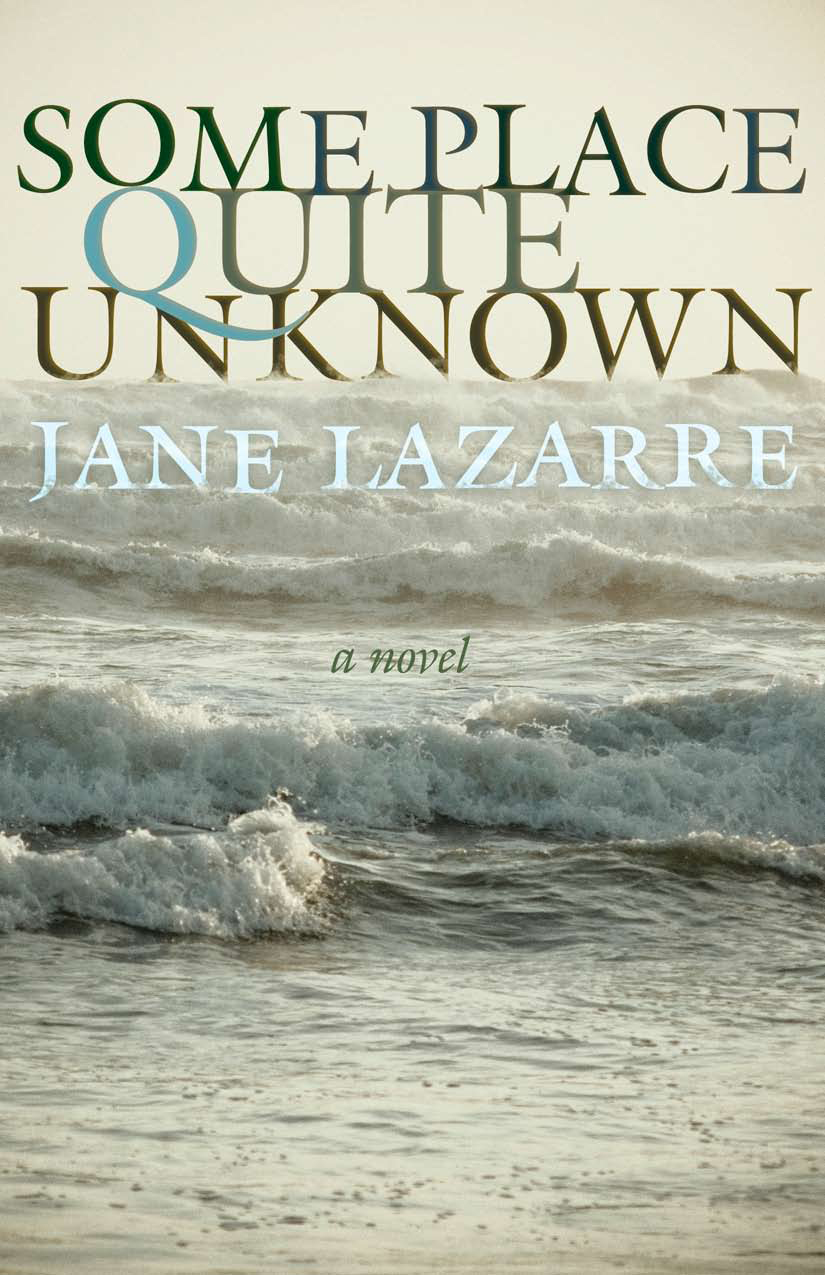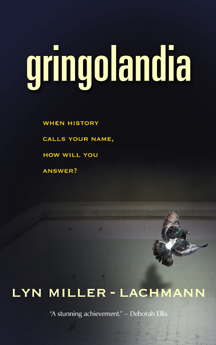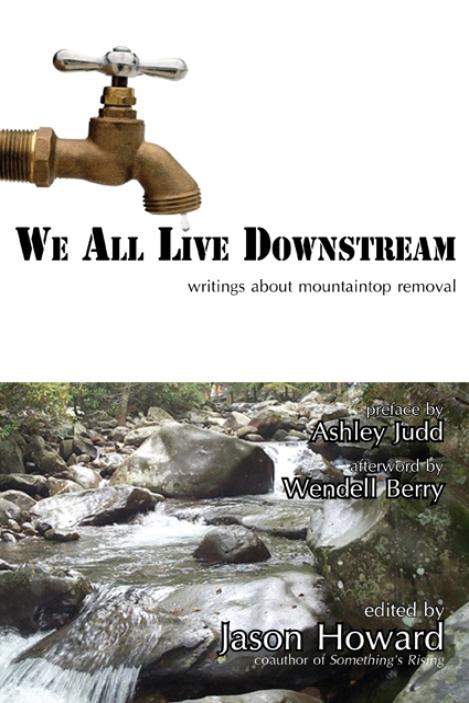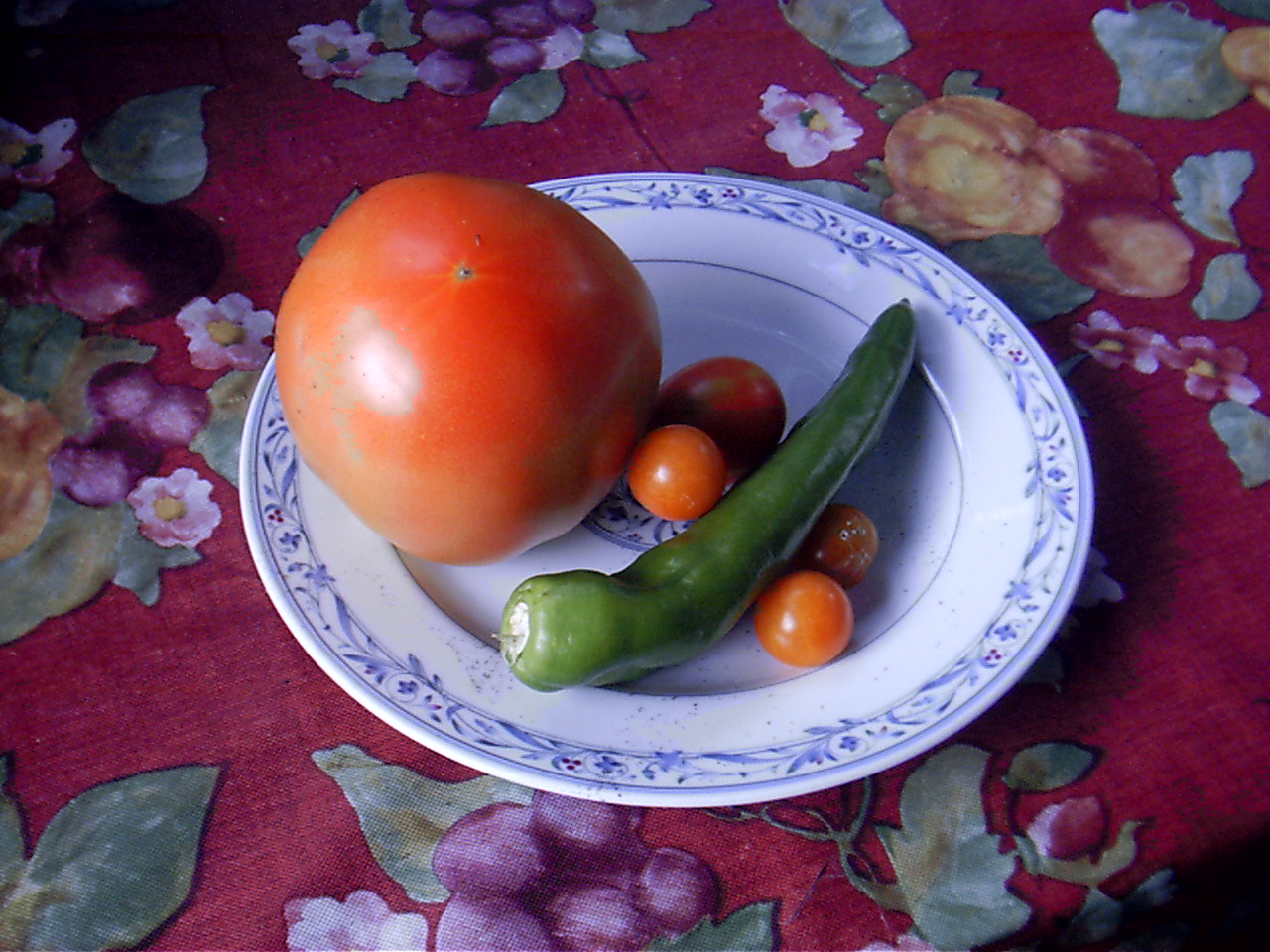And now it’s a really sticky gray day that feels like we're swimming through a thin jelly, damp, temperature and humidity the same in and out.
But I'm finally getting a few days with no big demands-- trying to nail down the Melisandre story, cut grass, weed in the garden, sewing projects, got off a newsletter. Silent hot stuff that feels lazy, not because I'm inactive, but mentally less focused? Not pushing myself? I'm just following where my inclinations go. Take a walk or a run. sew up the jeans that were too loose. Play with the parakeet. The quiet like a (damp) cotton blanket surrounds me.
Meredith Sue Willis's
Books for Readers #121
July 25, 2009
For a Free Email Subscription to Books for Readers, send a blank email to Readerbooks-subscribe@topica.com
Recent MSW News:
My story “The Roy Critchfield Scandals” appears in We All Live Downstream: Writings About Mountaintop Removal, edited by Jason Howard and published by Motes Books.
My short-short "My Most Embarrassing" is now online at Two Hawks Quarterly
A month after summer solstice, so the angle of light is more or less the same as late May. In other words, for all you optimists out there, please lower your spirits! The days are getting shorter! But the books are still long and rich. I want to begin this newsletter with one of the latest books from Hamilton Stone Editions, a small literary press with which I am associated. This new novel SOME PLACE QUITE UNKNOWN is by the well-known and well-published Jane Lazarre, whose work includes BEYOND THE WHITENESS OF WHITENESS, THE MOTHER KNOT and much more. For some of her awards and reviews, visit her website at http://www.janelazarre.com/
SOME PLACE QUITE UNKNOWN is a novel that slips around the border of memoir, but creates a full fictional world. It uses shifting points of view and a story-within-the story that– to Lazarre’s great credit– enhances the singleness of purpose and the intensity of the search for a lost mother. The book has a deep sensuality that fills the reader’s horizon the way menstrual cramps or nursing a baby can fill a woman’s.
As I was reading, I compared and contrasted it in my mind with Anaïs Nin’s diaries, but Lazarre’s book has none of the coyness and preciousness that marred Nin’s work for me. Maybe I’m just older and understand more, but I think Lazarre’s explorations are more powerful and honest. The story line is clear: the main character fears that she may be suicidal; she enters therapy; she explores where she has been and inquires  into the mystery of her mother’s suicide. She explores this mystery in many ways, some obvious and some surprising: she narrates dreams, interviews people of the past generation, talks with people of her son’s generation. She looks at photographs, reads letters, mulls over phrases from her mother’s letters, has conversations with her friends and her sister. She eats meals, she goes down to the sea on both coasts. She remembers and speculates.
into the mystery of her mother’s suicide. She explores this mystery in many ways, some obvious and some surprising: she narrates dreams, interviews people of the past generation, talks with people of her son’s generation. She looks at photographs, reads letters, mulls over phrases from her mother’s letters, has conversations with her friends and her sister. She eats meals, she goes down to the sea on both coasts. She remembers and speculates.
Mainly, Lazarre does all these things extremely well, with a straightforwardness that is totally convincing. This isn’t to say that the writing strategies are naive, on the contrary. But she moves forward with such concentration and intensity that as a reader I felt enthralled by her conviction. Near the end, quotations from Anne Sexton and Virginia Woolf begin to crop up, and that connection to women literary figures who committed suicide helps open the work out into the larger world in a fruitful and powerful way. In a different vein, Lazarre also creates wonderful portraits of people, especially my favorite, mean old Aunt Lucille, the older sister of the lost mother. Lucille appears in various contexts, from various angles, gradually sharpening into a clear, vivid, presence.
This is not reading for the beach; rather, it is reading for sounding the depths.
One more note: I picked up in a used bookstore LEON TROTSKY by Irving Howe, an excellent short introduction to Trotsky's ideas and place in history with a minimum of biography. Howe is sympathetic and admiring, but deeply critical of Trotsky and all the old Bolsheviks for not seeing in time that their policies might lead to a monstrous catastrophe like Stalinism. Howe’s point is that however brilliant and serious and brave Trotsky was– fascinating, literary, and indefatigable in working toward social change– he did not move anywhere near fast enough against the evil potential in Bolshevism that was realized, whereas the promise of Bolshevism never was.
In related reading, I came across an article in the NEW YORK REVIEW OF BOOKS by Timothy Snyder called “Holocaust: The Ignored Legacy” (The New York Review of Books, Volume 56, Number 12 , July 16, 2009. P.14 - 16). Snyder asserts that the real center of the Holocaust was not western Europe and the German Jews, not even Auschwitz, which was a work camp as well as an extermination camp and thus had survivors to tell the story. The real killing center, he says, was Eastern Europe, specifically Belarus and the Ukraine, both ravaged by Stalin in the thirties then by the Nazis in the forties with planned starvation and famine and simple shooting and clubbing to death as well as more technologically advanced methods of killing.
MORE RECOMMENDATIONS
Jeffrey Sokolow writes to say he has “just finished RED ORCHESTRA: THE STORY OF THE BERLIN UNDERGROUND AND THE CIRCLE OF FRIENDS WHO RESISTED HITLER by Anne Nelson, a new book on "Die Rote Kapelle," The Red Orchestra, which was the name the Nazis gave the (mostly unconnected) circles of anti-fascist militants and Soviet-led espionage agents (the two categories were not mutually exclusive) who performed truly heroic deeds during the darkest days of the Third Reich. As the subtitle indicates, it focuses mostly on the resistance angle. Another highly recommended book with the same focus is RESISTING HITLER: MILDRED HARNACK AND THE RED ORCHESTRA by Shareen Blair Brysac, a biography of Mildred Fish-Harnack, the only American woman to be executed in Nazi Germany under Hitler's personal orders. For the fascinating espionage side of the story, two books are recommended: THE RED ORCHESTRA by Gilles Perrault and THE GREAT GAME: MEMOIRS OF THE SPY HITLER COULDN'T SILENCE by Leopold Trepper. Trepper's story is mind-blowing and why it hasn't been made into a movie, I can't imagine (well, maybe we're not ready yet for a film whose hero is a Soviet Jewish anti-Stalinist spy chief). Although these last two books are out of print, they both are well worth finding. I haven't read THE RED ORCHESTRA by V. E. Tarrant, but a glance at the table of contents suggests it might be interesting. Not recommended is CODEWORD DIREKTOR by Heinz Hohne, which relies too much on tendentious Nazi materials that slander the participants in the resistance as sex deviants and traitors to Germany (not that there's anything wrong with that).”
Reamy Jansen suggests “Mary Elizabeth Braddon's LADY AUDLEY'S SECRET, one of the Victorian sensation novels of the 1860's, great Oxford paperback. Sterling introduction and excellent notes. A great read. She wrote 85 novels, mostly dreck probably. However, this one in terrific.”
GRINGOLANDIA
Linda Marshall has sent us a special recommendation of GRINGOLANDIA by Lyn Miller-Lachmann. She says, “I want to tell everyone I know to read this amazing book. Once I began GRINGOLANDIA (Curbstone Press, 2009), I couldn’t put it down. A generally slow reader with numerous obligations and interests that keep me from reading, I stopped everything to read this book. It’s an amazing and historically accurate novel about Chile under the Pinochet regime – and the effects of the Pinochet regime on the population. The main characters, Daniel, Marcelo/Nino (his father), Tina (Daniel’s sister) and Courtney (Daniel’s girlfriend) are vivid, believable and haunting. Told from multiple points of view and written in a way that is suitable for Young Adult readers, GRINGOLANDIA is a must-read for any adult, high school or college student concerned about the horrors of torture and political repression.
“GRINGOLANDIA begins in Santiago, Chile in 1980, when Daniel awakens to see his father  being beaten, tortured and hauled away: Daniel, his mother and sister flee Chile and find refuge in Madison, Wisconsin. More than five years later, Marcelo is released, but he is partially paralyzed, the result of a savage beating in prison. Daniel is horrified to see what has happened to his father and wonders if he’ll ever have the same relationship with him that he had before:
being beaten, tortured and hauled away: Daniel, his mother and sister flee Chile and find refuge in Madison, Wisconsin. More than five years later, Marcelo is released, but he is partially paralyzed, the result of a savage beating in prison. Daniel is horrified to see what has happened to his father and wonders if he’ll ever have the same relationship with him that he had before:
‘I nod, but inside my down coat, I’m shaking. Sure, [Mamá] told me about Papá being tortured, and it was on the leaflets, too. But that was just words. This guy is really messed up. Maybe he isn’t Papá. Maybe this is some kind of sick joke, some way of torturing the family, killing Papá and sending this crippled guy to take his place.’
“Daniel’s struggle to reclaim that relationship, and his conflict with his girlfriend, Courtney, who wants to start a human rights newspaper using Marcelo’s story, is the focus of the novel. GRINGOLANDIA concludes in 1991. Pinochet is no longer in power and the country is healing. Marcelo, now living in his own home in Santiago, has a parrot that he has rescued from a cruel neighbor.
‘The beauty of it all filled the hole inside, where torturers had tried to beat out or burn away every emotion except the fear and rage that they expected would eventually consume me.
‘I’m healing, too,’ I said. ‘Just give me time.’”
Linda also praises Lyn Miller-Lachmann's DIRT CHEAP as a “very good, fast-paced eco-thriller.”
NEWS
Iris Schwartz is the guest poet at http://octoberbabies.wordpress.com/
She also has a poem on Jee Leong Koh's blog: http://jeeleong.blogspot.com.
Laren Stover’s story “The Last Geronimo” is the lead fiction story on GUERNICA, a magazine of art & politics described as "a magazine of art & politics." GUERNICA called out by Esquire’s blog as a Great Online Literary Magazine. "The Last Geronimo" is the funny and sad story of Geronimo the Third and a pet monkey named Colette. See http://www.guernicamag.com/fiction/1100/the_last_geronimo/
Allan Appel’s new play THE EXCOMMUNICATION OF MRS. EATON, a theological love story, is based on the record of the excommunication trial of the wife of New Haven's founder in 1645. The play takes place in New Haven at the church on the Green. For more information, see http://www.newhaventheatercompany.com/node/640
Barry Wildorf’s historical novel, DAWN OF DARKNESS, is now available as an ebook from SCRIBD (http://www.scribd.com/doc/16747951/Dawn-of-Darkness) or just Google the title. DAWN OF DARKNESS is a fictional account of two very courageous women who heroically resisted the Church's efforts to destroy classical knowledge, and with it women's traditional roles as teachers and healers, during the dying days of the Roman Empire. Since, as we know, the Church ultimately won, condemning nearly everything written by classical/pagans as heresy, and burned most of their books thereby bringing us the Dark Ages, we have to use our imaginations to fill in the gaps. Hence, DAWN OF DARKNESS is both a cautionary tale and a work of fiction.
HARLEM VS. COLUMBIA UNIVERSITY: BLACK STUDENT POWER IN THE LATE 1960S, by Stefan M. Bradley is now available at
http://www.press.uillinois.edu/books/catalog/69erx5xt9780252034527.html
Mary Lucille DeBerry’s new book of poems is BERTHA BUTCHER'S COAT.
Sandy Vrana's work was selected as a finalist in the 2009 Patricia Dobler Poetry Contest sponsored by the Master of Fine Arts in Creative Writing of Carlow University, Pittsburgh, Pa.
Barbara Crooker: "Secret Garden" is in the Saw Palm Review: http://www.sawpalm.usf.edu/0809/crooker.html (you have to scroll down the page)."After the Operation, I Find I Like Sleeping Alone" and "Walking in the Orchard with Katha Pollitt" are in the new issue of Summerset Review: http://www.summersetreview.org/09summer/crooker01.html.
And her book LINE DANCE won the 2009 Paterson Award for Literary Excellence!
ANDERBO story “The Right Passengers” by Waqar Ahmed was honored as one of the 2009 BEST OF THE WEB stories! See http://www.anderbo.com/anderbo1/afiction-028.html This 2008 story now appears in Dzanc Books' BEST OF THE WEB 2009.
ONLINE
An interesting source of seld-editing advice is at http://www.selfeditingblog.com/ plus a site for screnwriters at http://lonelykeyboard.com/
Samples of Bob Heman’s Information Pages: http://www.ditchpoetry.com/bobheman.htm
New issue of Internet Review of Books is up at http://internetreviewofbooks.com/index.html
Garrison Keillor read a poem from Barbara Crooker’s LINE DANCE "The VCCA Fellows Visit the Holiness Baptist Church" on The Writer's Almanac on Sunday, June 28th. Archived here: http://writersalmanac.publicradio.org/archive.php.
An interview with Brenda Seabrooke: http://michaelspradlin.com/blog/2009/06/five-on-friday-with-brenda-seabrooke/
CONTESTS AND SUBMISSIONS
ANDERBO SEEKS NOVELIST: Anderbo.com is seeking to post ONE unpublished entire novel on its website by December 1, 2009 for at least the following six months. We will look at the FIRST 30 PAGES (up to 10,000 words) of your e-manuscript and decide within 60 days if we want to see more. THERE IS NO READING FEE and all literary rights will remain with the author. No novel submissions will be accepted after September 1st. We guarantee to choose and use one manuscript, and to pay an honorarium of $300 to the chosen author upon publication. For technical guidelines and address see http://www.anderbo.com/guidelines.html


No comments:
Post a Comment